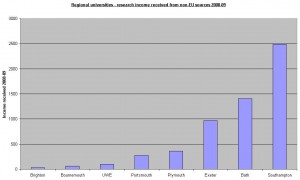The British Science Association has just published details of the activities that will be taking place during the British Science Festival in Aberdeen 4-9th September. Can you can find the guide here.
The really exciting programme include appearances from famous faces (such as Brian Cox and Bill Bryson), talks (e.g. Offshore Emergencies: Medicine in Extreme Conditions), workshops (e.g. How to Solve Crime with Mathematics), evening events (e.g. the Science of Cocktails), family events in the city (e.g. the Science of Fireworks), family events at the beach (e.g. the Cosmic Dome), trips/tours (e.g. Sense-Walking) and exhibitions (e.g. Bubbles and Balloons).
Obviously, it is not that easy to attend the festival if you live locally to BU, but if you are interested in public engagement it is well worth looking at the programme. The mini-guide could also provide useful inspiration if you are planning to apply to run a public engagement activity at the Festival of Learning, here at BU.
Also, if you are an Early Career Researcher, or know of others that would benefit from the opportunity of getting involved at the Festival, the British Science Association is recruiting Festival Assistants. More details can be found here. Please note that the closing date for applications is 30th June.
If you are planning to go to the Festival, please contact Becca in the RDU on redwards@bournemouth.ac.uk – we would be delighted to know which aspects of the Festival of you think worked well and why.
 Following on from the recent AHRC/Radio 3 New Generation Thinkers pilot scheme and the over-subscribed AHRC Broadcast Media workshops , the
Following on from the recent AHRC/Radio 3 New Generation Thinkers pilot scheme and the over-subscribed AHRC Broadcast Media workshops , the 














 REF Code of Practice consultation is open!
REF Code of Practice consultation is open! BU Leads AI-Driven Work Package in EU Horizon SUSHEAS Project
BU Leads AI-Driven Work Package in EU Horizon SUSHEAS Project Evidence Synthesis Centre open at Kathmandu University
Evidence Synthesis Centre open at Kathmandu University Expand Your Impact: Collaboration and Networking Workshops for Researchers
Expand Your Impact: Collaboration and Networking Workshops for Researchers ECR Funding Open Call: Research Culture & Community Grant – Apply now
ECR Funding Open Call: Research Culture & Community Grant – Apply now ECR Funding Open Call: Research Culture & Community Grant – Application Deadline Friday 12 December
ECR Funding Open Call: Research Culture & Community Grant – Application Deadline Friday 12 December MSCA Postdoctoral Fellowships 2025 Call
MSCA Postdoctoral Fellowships 2025 Call ERC Advanced Grant 2025 Webinar
ERC Advanced Grant 2025 Webinar Update on UKRO services
Update on UKRO services European research project exploring use of ‘virtual twins’ to better manage metabolic associated fatty liver disease
European research project exploring use of ‘virtual twins’ to better manage metabolic associated fatty liver disease